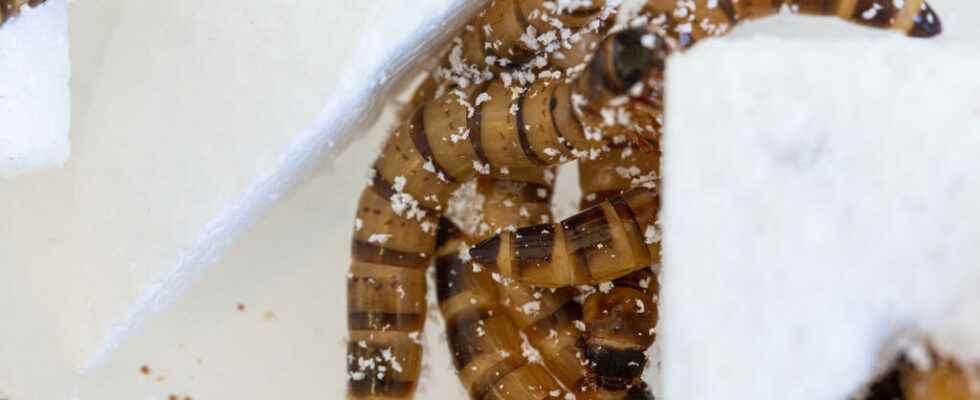How do you deal with disposable cutlery, CD cases or packaging plastics that often end up in landfills or worse in the oceans? American researchers have just discovered that “super worms” could feed on polystyrene and play an important role in research on recycling.
It was by observing that tiny wax and flour worms could eat plasticwhich scientists have speculated that much larger worms could probably eat a lot more.
To verify this postulate, researchers at the Australian University of Queensland submitted larvae of zophobas morio beetles – giant mealworms – to different types of diet for three weeks. Some were given polystyrene, others sound and others nothing. Verdict: Not only did the plastic diet group survive, but they also gained weight.
The researchers were able to establish that the key to the digestion of these super worms was in their intestinal enzymes. One downside, however: the exclusive plastic diet has an impact on the health of these worms. Scientists are therefore suggesting several avenues: either subject these super worms to a mixed diet, or take inspiration from the larvae by creating recycling who would first shred the plastic before disposing of it.
The researchers also plan to focus their research on enzymes to make them even more effective.
►To read: The export of plastic waste, another threat to the oceans
